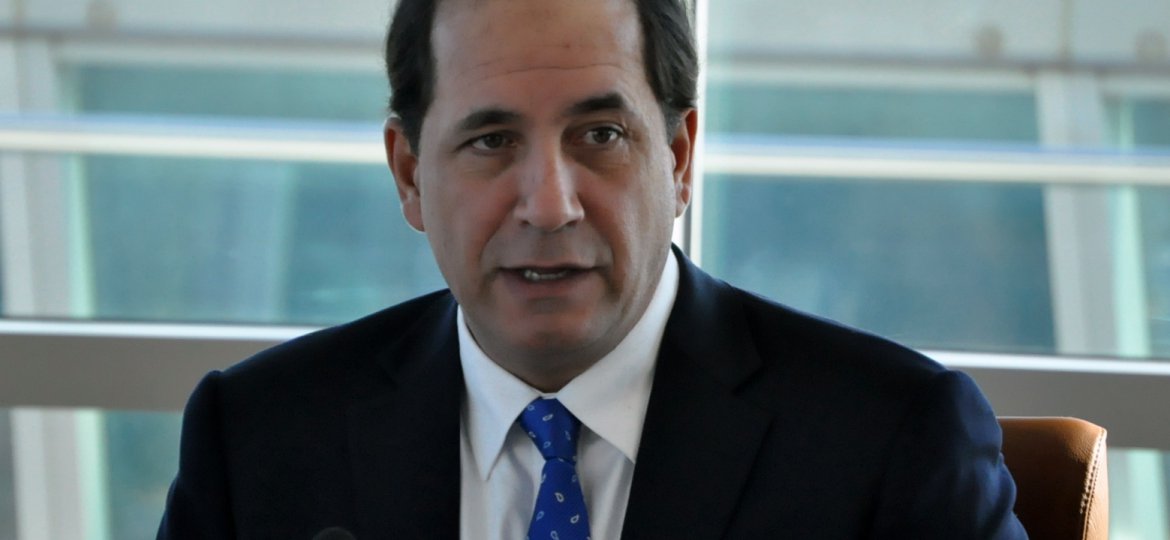
Legislation Stems From Governor’s State of the State Address; Addresses Insurance Coverage, Prescription Limits and Continuing Education for Health Care Professionals
TRENTON – Legislation sponsored by Senate Health Committee Chairman Joseph F. Vitale and Senate President Steve Sweeney that aims to address the addiction crisis in New Jersey cleared the Senate Health, Human Services and Senior Citizens Committee today.
The bill, S-3, is the latest of many bills spearheaded by Senator Vitale in the fight against the opioid and heroin epidemic in New Jersey, and addresses topics that include insurance coverage for inpatient and outpatient substance use disorder treatment, prescription limits for the management and treatment of acute pain, and continuing professional education for prescribers and health care professionals.
“By acknowledging the Governor’s bold ideas to address the opioid and heroin addiction crisis and including additional elements to the bill that will prove necessary in this fight, I am confident we are on the right path to a comprehensive solution,” said Senator Vitale (D-Middlesex). “We can save lives by removing the barriers to treatment that exist today. By expanding insurance coverage to those who need immediate access to help, meaningfully addressing the abuse and diversion of prescription painkillers by creating guidelines for issuing such prescriptions, and by ensuring that our healthcare professionals are up-to-date with proven best practices, evidence-based standards of care, we will save lives.”
“Senator Vitale has been providing strong and effective leadership on this issue and I join him in putting in place a comprehensive and far-reaching plan to address the raging crisis of opioid and heroin abuse,” said Senator Sweeney. “Treatment and prevention are important. We have to provide treatment for addiction, limit the overuse of prescription opioids, and prevent young people and others from getting started on illicit drug use. Too many lives have been lost or destroyed, too many families have suffered and too many communities have been hurt. This is a public health crisis that can’t be ignored.”
Insurance Coverage
The bill would require health insurance carriers, the State Health Benefits Program, and the School Employees’ Health Benefits Program, to adhere to certain coverage requirements for treatment of substance use disorders.
Specifically, it would require insurers to provide unlimited benefits for inpatient and outpatient treatment of substance use disorders at in-network facilities that are prescribed by a licensed physician, licensed psychologist, or licensed psychiatrist and provided by licensed health care professionals or licensed or certified substance use disorder providers in licensed or otherwise State-approved facilities.
The bill provides that the benefits, for the first 180 days per plan year of inpatient and outpatient treatment of substance use disorder, shall be provided when determined medically necessary by the covered person’s physician, psychologist or psychiatrist without the imposition of any prior authorization or other prospective utilization management requirements. If there is no in-network facility immediately available for a covered person, a carrier would be required to provide necessary exceptions to their network to ensure admission in a treatment facility within 24 hours.
Under the bill, providers of substance use disorder treatment would not require pre-payment of medical expenses during the 180 days in excess of applicable co-payment, deductible, or co-insurance under the policy. The benefits for outpatient visits would not be subject to concurrent or retrospective review of medical necessity or any other utilization management review.
The bill would also require benefits for the first 28 days of an inpatient stay, intensive outpatient or partial hospitalization during each plan year to be provided without any retrospective review or concurrent review of medical necessity, and medical necessity would be as determined by the covered person’s physician.
The benefits for days 29 and thereafter of inpatient care, intensive outpatient or partial hospitalization services would be subject to concurrent review. The bill would establish a process for concurrent review and an appeals process pursuant to the Independent Health Care Appeals Program in the Department of Banking and Insurance.
The bill would also specify that benefits for inpatient and outpatient treatment of substance use disorder after the first 180 days per plan year shall be subject to the medical necessity determination of the insurer and may be subject to prior authorization or, retrospective review and other utilization management requirements.
Under the bill, the medical necessity review would use an evidence-based and peer reviewed clinical review tool to be designated through rulemaking by the Commissioner of Human Services in consultation with the Department of Health.
The bill would also require the benefits for outpatient prescription drugs used to treat substance abuse disorder shall be provided when determined medically necessary by the covered person’s physician, psychologist or psychiatrist without the imposition of any prior authorization or other prospective utilization management requirements.
The bill would place responsibility on the Attorney General’s Office for overseeing any violations of law that may result from the bill, including fraud, abuse, waste, and mistreatment of covered persons. The bill also clarifies that the provisions requiring health insurance coverage do not apply to plans administered by the Department of Human Services – Medicaid and NJ FamilyCare.
Prescription Limits & Guidelines in Acute and Chronic Pain Management & Treatment
The bill would also place restrictions on how Schedule II controlled substances may be prescribed. In cases of acute or chronic pain, prior to issuing an initial prescription for any opioid or Schedule II controlled dangerous substance, a practitioner would be required to take and document the results of a thorough medical history, conduct and document a physical examination, develop a treatment plan, access relevant prescription information under the Prescription Monitoring Program, and limit the initial prescription in cases of acute pain to a five-day supply of the lowest effective dose of immediate-release opioid drug. Under the bill, no less than four days after issuing the initial prescription, a practitioner may issue a subsequent prescription following consultation with the patient, provided that it is deemed necessary and appropriate for treatment and that the subsequent prescription does not present an undue risk of abuse, addiction or diversion.
The bill also calls for clear and direct discussions with patients, or a patient’s parent or guardian if he or she is a minor, about the risks associated with the schedule II controlled dangerous substances or any other opioid drug being prescribed prior to issuing the initial prescription and at certain stages during the course of treatment.
Specifically, the practitioner would discuss the risks of addiction and overdose, the medical necessity for the prescription, alternative treatments that may be available, the risks of developing a physical or psychological dependence on the controlled dangerous substance, and the dangers of taking opioid drugs with alcohol or other medications, according to guidelines to be published by the Division of Consumer Affairs. A note would be entered by the prescriber on the patient’s medical record acknowledging that the discussion took place.
The bill would also require that at the time of the issuance of the third prescription, the practitioner enters into a pain management agreement with the patient, and calls for a review every three months at a minimum for patients with chronic pain.
Patients who are currently in active treatment for cancer, receiving hospice care from a licensed hospice or palliative care, or who reside in a long-term care facility would be exempt from the prescription limitations.
Continuing Professional Education
Finally, the bill would require that health care professionals who have the authority to prescribe opioid medications, including physicians, physician assistants, dentists, and optometrists, receive training on topics related to prescription opioid drugs.
Health care professionals will be required to complete one continuing education credit on topics that include responsible prescribing practices, alternatives to opioids for managing and treating pain, and the risks and signs of opioid abuse, addiction, and diversion. The required six contact hours of continuing professional education in pharmacology related to controlled substances for advance practice nurses, who also have prescribing authority, will include the same issues concerning prescription opioid drugs.
Under the bill, those who do not have prescribing authority but who frequently interact with patients who may be prescribed opioids, including pharmacists, professional nurses, and practical nurses, would also be required to complete one continuing education credit on topics that include alternatives to opioids for managing and treating pain and the risks and signs of opioid abuse, addiction, or diversion.
The continuing education credits required under the bill would be part of a professional’s regular continuing education credits and would not increase the total number of continuing education credits required.
The bill would additionally provide that certified nurse midwives will be required to complete one credit of educational programs or topics related to prescription opioid drugs as part of the 30 contact hours in pharmacology training that is required for them to be authorized to prescribe drugs.
“We are committed to a dedicated and sustained effort to fight New Jersey’s number one public health crisis, and I look forward in moving forward with this bill,” added Senator Vitale.
S-3 cleared the Senate Health Committee with a vote of 7-0. It next heads to the Senate for further consideration.









